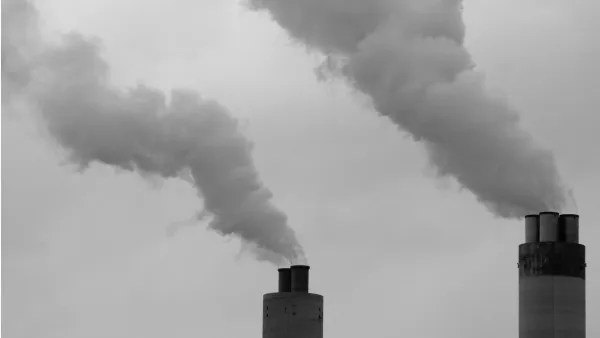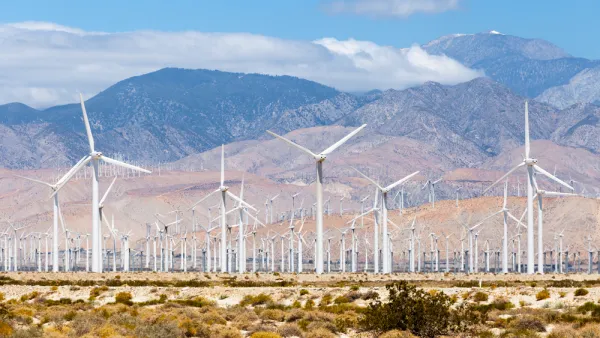A new report attributes a 9% decrease in greenhouse gas emissions from the nation's power plants in 2009 to the relatively cheap price of generating electricity from natural gas versus coal.
While the economic recession is credited with a nationwide decrease in greenhouse gas emissions of nearly 7% in 2009, a new report, published in the journal Environmental Science & Technology, provides a different explanation for the decrease found in the electricity generation sector.
"A Harvard University release reports that in the United States, the power sector is responsible for 40 percent of all carbon emissions. In 2009, CO2 emissions from power generation dropped by 8.76 percent. Harvard researchers attribute that change to the new abundance of cheap natural gas."
"Generating 1 kilowatt-hour of electricity from coal releases twice as much CO2 to the atmosphere as generating the same amount from natural gas, so a slight shift in the relative prices of coal and natural gas can result in a sharp drop in carbon emissions," explains Michael B. McElroy, Gilbert Butler Professor of Environmental Studies at Harvard School of Engineering and Applied Sciences, who led the study. "That's what we saw in 2009," he says, "and we may well see it again."
E&E did report one warning included in the study, and a recommendation from the lead researcher to address it:
"...although the abundance of natural gas is lowering U.S. greenhouse gas emissions today, McElroy said the glut of gas could make it harder for America to continue to cut its global warming pollution.
"Long term, it's not good news," he said. "It's going to make gas much more competitive than renewable energy."
"To help make wind, solar and other renewable sources of electricity more competitive, the Harvard study recommended that the federal government impose a carbon tax of $5 per ton of carbon dioxide. The report said that fee would increase electricity prices by 0.3 cents per kilowatt and contribute $12 billion in revenue to the federal treasury."
Thanks to E&E Publishing- EnergyWire
FULL STORY: Cheaper natural gas leads to reduced U.S. carbon emissions

Analysis: Cybertruck Fatality Rate Far Exceeds That of Ford Pinto
The Tesla Cybertruck was recalled seven times last year.

National Parks Layoffs Will Cause Communities to Lose Billions
Thousands of essential park workers were laid off this week, just before the busy spring break season.

Retro-silient?: America’s First “Eco-burb,” The Woodlands Turns 50
A master-planned community north of Houston offers lessons on green infrastructure and resilient design, but falls short of its founder’s lofty affordability and walkability goals.

Test News Post 1
This is a summary

Analysis: Cybertruck Fatality Rate Far Exceeds That of Ford Pinto
The Tesla Cybertruck was recalled seven times last year.

Test News Headline 46
Test for the image on the front page.
Urban Design for Planners 1: Software Tools
This six-course series explores essential urban design concepts using open source software and equips planners with the tools they need to participate fully in the urban design process.
Planning for Universal Design
Learn the tools for implementing Universal Design in planning regulations.
EMC Planning Group, Inc.
Planetizen
Planetizen
Mpact (formerly Rail~Volution)
Great Falls Development Authority, Inc.
HUDs Office of Policy Development and Research
NYU Wagner Graduate School of Public Service



























